Do Deer Eat Petunias? How to Know If They're Deer Resistant
:max_bytes(150000):strip_icc():format(jpeg)/thespruce-petunia-PaoloCarnassale-d2989df751894867b7cadc987c5c0fd4.jpg)
Getty Images / Paolo Carnassale
Do deer eat petunias? Yes, deer love petunias as a snack—they are soft and filled with moisture. While they might love them for snacking, we love petunias as classic spring and summer flowering annuals (perennials in USDA hardiness zones 9-10) that thrive in the garden and containers.
Petunias bloom from early spring until frost, have a lovely fragrance, and are easy to grow. With hundreds of petunia varieties in a wide range of colors, you are sure to find one you love. But if deer often cross your property, we're here to help you avoid them getting eaten.
Learn how to keep deer away from petunias and some better choices for your garden if deer are a problem.
How to Keep Deer Away from Petunias
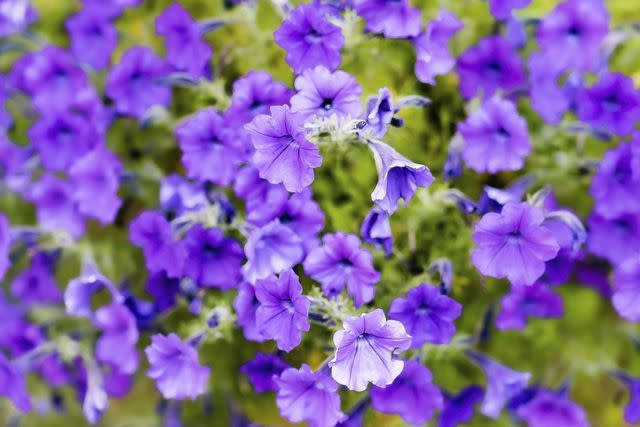
The Spruce / Autumn Wood
Hang 'em high. Deer tend to start feasting on the easiest-to-reach plants. Planting petunias in a hanging basket will slow down the devastation.
Use motion-activated sprinklers and lights. Fear is a deer repellent. Only the hungriest deer will stay if they are startled by sprinklers or lights.
Get a noisy pet. A barking dog is another fear tactic to keep deer away.
Cage your plants. Keeping your petunias in a cage defeats the purpose of growing them for their lovely blooms but a tomato cage covered with tightly woven netting will prevent the deer from eating the plants.
Add fencing. Adding a very tall fence around your garden is expensive but can be a deterrent to a deer invasion.
Use a commercial repellent spray. The best repellants have a bad taste or scent. Success in using them involves reapplication after rains or irrigation and rotating between several once the deer acclimate to one. Commercial repellants often contain garlic, capsicum pepper, or putrid egg solids.
Make a DIY repellent spray. A DIY repellent spray can be as effective as commercial products. Use a blender to mix three whole eggs in 2 cups of water. Pour the mixture into a garden sprayer and add enough water to make one gallon. Shake well to combine. Spray the mixture on plants until the leaves are wet and shiny. Reapply every two weeks or after a rain.
Will Petunias Grow Back If They Get Eaten?
If the deer left some green growth on the petunias, new growth will usually emerge if you give the plants some TLC.
Remove any damaged growth and water the plants well with a water-soluble fertilizer.
The plants should be protected with a cage or repellent to prevent further damage.
If the deer has eaten all of the greenery, the plant will probably not come back. Replant the area or container with a more deer-resistant plant.
35 Plants to Grow That Are Deer-Resistant
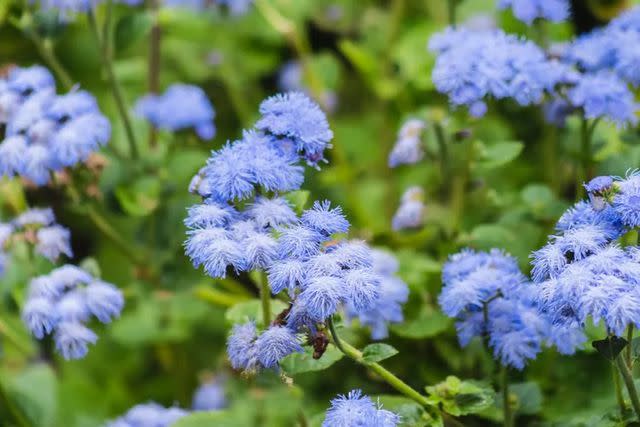
The Spruce / Autumn Wood
Here are 35 of the most deer-resistant flowering annuals and perennials for your garden.
Ageratum (Ageratum houstonianum)
Bigleaf Goldenray (Ligularia dentata)
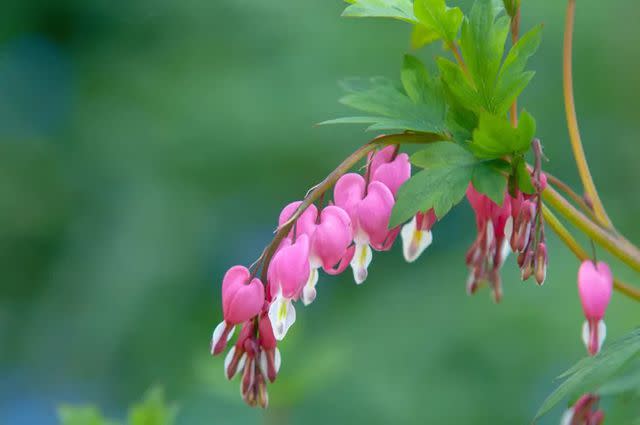
The Spruce / Evgeniya Vlasova
Butter and Eggs (Linaria vulgaris)
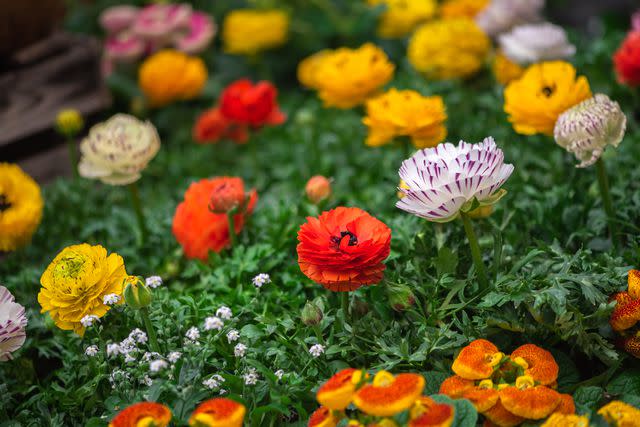
The Spruce / Evgeniya Vlasova
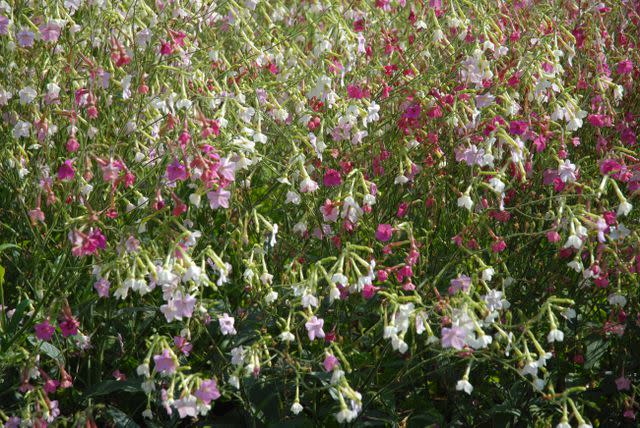
Josie Elias / Getty Images
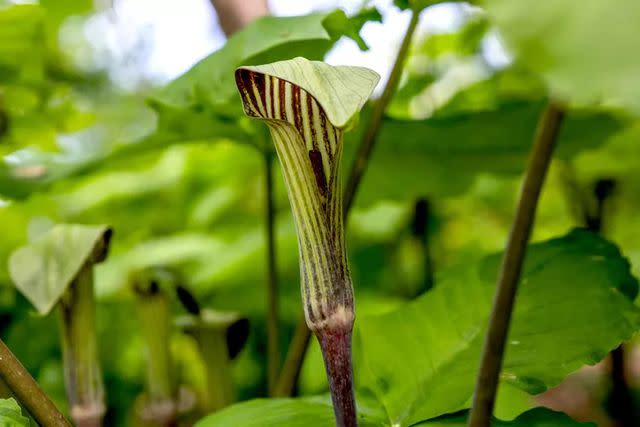
The Spruce / Adrienne Legault
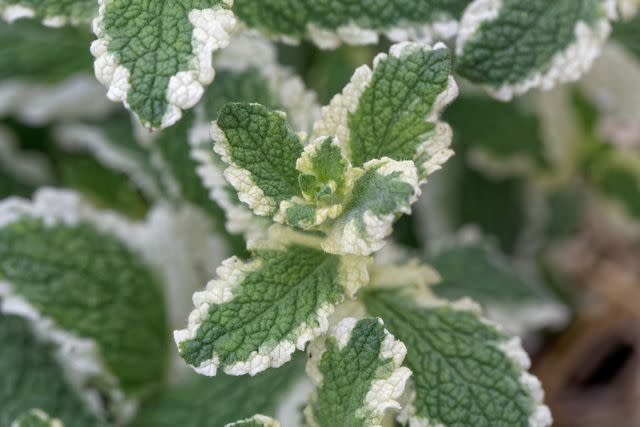
weisschr / Getty Images
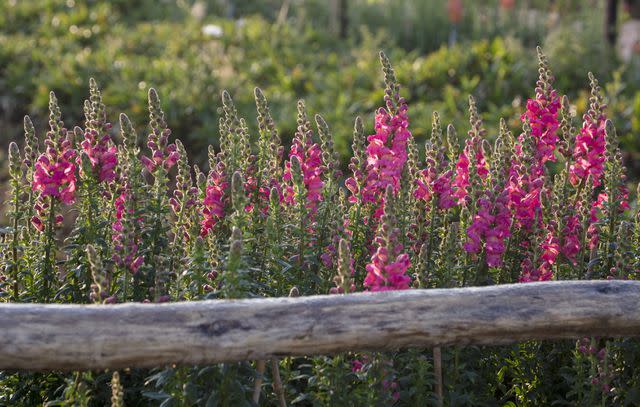
Snow-on-the-Mountain (Euphorbia marginata)
Statice (Limonium latifolium)
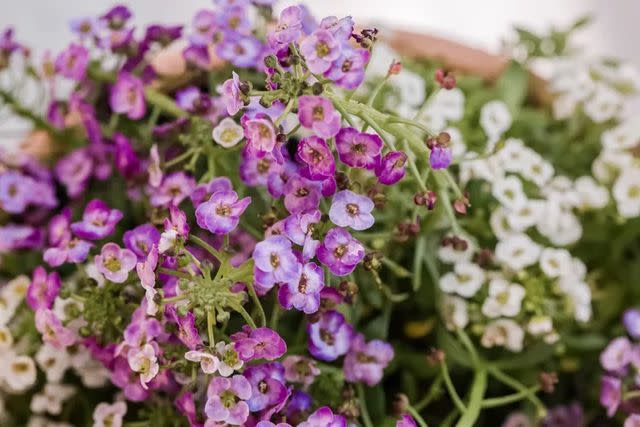
The Spruce / Kara Riley
Frequently Asked Questions
What plant do deer hate the most?
Deer prefer tender plants that are filled with moisture. They hate strong-smelling plants and those with tough, thorny textures. Allium (ornamental onions) and cacti are tied for the plant deer hate the most.
Do deer eat geraniums?
Geranium leaves are highly-scented and the plants are deer-resistant because deer will consume other plants like petunias, hostas, and impatiens that they enjoy more first.
What annuals will deer not eat?
There are very few annuals that a very hungry deer will not eat but these are the most deer-resistant: Ageratum, Angel's Trumpet, Cleome, Dusty Miller, Flowering tobacco, Forget me nots, Heliotrope, Larkspur, Poppy, Pot marigold, Snapdragon, Strawflower, Sweet Alyssum.
Read the original article on The Spruce.

